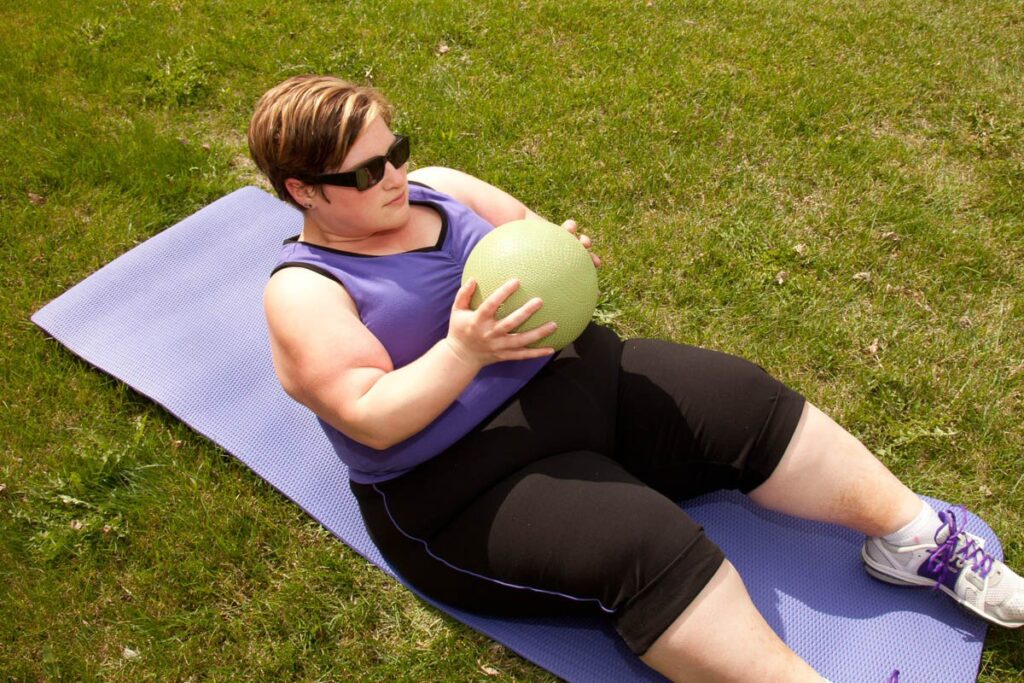Lifestyle Changes
Lifestyle Changes
NHS Inform also has guidance on healthy eating without focusing on weight loss, suitable for most people, as well as eating well during pregnancy. Please see the pages on eating difficulties if you have or suspect you have an eating disorder.
If you have diabetes (type 1, type 2 or gestational), you’ll find lots of helpful advice and information about healthy lifestyles and food psychology on the following websites:
There is also helpful advice regarding managing heart or circulatory conditions:
Whilst lifestyle change advice, particularly for type 2 diabetes and heart disease risk management, often focuses on weight loss, it is important to think about your overall health and to try to make small, realistic lifestyle changes you can keep up in the long term. For example, focusing on gradually increasing your physical activity, eating regularly, or increasing how many vegetables you eat can be good for your health, even if your weight doesn’t change. Unless there’s a clear medical reason not to eat certain foods, such as a diagnosed allergy, try not to label foods as being either good or bad, and instead aim for a balanced diet that includes a wide range of foods. This can be challenging to do when diet culture preys on our insecurities and many companies profit from selling us unsustainable eating plans or expensive products. For reliable information on different nutrients and ways of eating when you have various health conditions, the British Dietetic Association (BDA) has a range of Food Facts guides. More information on how to lose weight safely can be found here
Mindful eating
If you’ve grown up with a “waste not, want not” message, you might feel that you always need to finish what’s on your plate. This can lead you to eat more than you need. It’s a common habit that won’t change overnight, but you can learn to be more aware of these habits and slowly shift them over time, learning to work towards eating when you’re hungry and stopping when you’re satisfied, most of the time. One of the key strategies for this is called mindful eating. It involves slowing down to notice the smell, taste and texture of your food whilst you eat, as well as learning to pay attention to our hunger and satiety cues. Some people find that they get more enjoyment from food when they eat mindfully, and this can make it easier to stop eating when you’ve had enough. It also helps with our digestion, as well as being a more effective way of soothing ourselves if we’ve had a difficult day, compared with rapid, mindless eating. It is not realistic to eat mindfully 100% of the time, so we encourage you to focus on small steps towards eating mindfully more often, rather than expecting yourself to do this all of the time. You can find more information on mindful eating on NHS Grampian’s website and the BDA.

Health behaviours
Weight and BMI are only rough guides to assessing health risks. It is also very common for people to regain weight that they have lost. Rather than giving up altogether, it can be more helpful to focus on specific health behaviours as an indication of moving in the right direction, regardless of the numbers on the scale. This includes:
- improving nutrition (focusing on adding nutritious foods, rather than trying to eat as little as possible, eating regularly and practising mindful eating; portion control is important but some people may need to work on this at a later stage once more in tune with their energy requirements and bodily cues)
- increasing physical activity (doing what we enjoy and are able to manage, not focusing on how many calories we have burned)
- getting enough sleep
- reducing alcohol intake
- reducing / stopping smoking
Give yourself credit for what you are already managing and then slowly add in small changes you can make to further improve the areas above, based on what is possible and realistic for you in your current circumstances.
Stress management is another important consideration when we are trying to work on health behaviours, especially if we are using food, alcohol or cigarettes to cope with stress on a regular basis. Some people find that they increase how much they eat and gain weight after giving up alcohol, cigarettes or other addictive substances. If that applies to you, well done for moving past your addiction; food is less harmful than those substances in the short term, and you can now start working on how to meet your needs more skilfully in order to look after your overall health and wellbeing. Thinking about why you were using those substances in the first place might give you an idea of what would be helpful to work on because we can’t give up food altogether. This might involve focusing on stress management or finding new ways to manage difficult emotions.
The COVID-19 pandemic has affected many people’s eating habits, especially as routines have had to change and our usual enjoyable activities may no longer be available. If this applies to you, it’s not your fault. This is a challenging situation that continues to affect each of us in different ways. It might be a good time to return to old hobbies or to try one or two new activities at home, to manage boredom or to relax, even if it isn’t quite the same as what you like doing best. Going for short walks for even five minutes can be a great way of getting some fresh air and looking after your mental health as well as your physical health. Try to set realistic goals based on your current circumstances, rather than aiming for a particular amount of activity or a certain number on the scales. And if you’ve a bad day, be gentle with yourself and choose one small step that you could take to get yourself back on track.
Moving past fad diets
You may have heard of many types of diets, all claiming to be better than the other ones. We do not recommend following extreme diets that involving cutting out whole food groups or anything that is not realistic to follow for the long term. Many of these fad diets might work in the short term but will inevitably stop working for almost everyone due to being impossible to sustain. They can also lead to rapid weight regain and make us feel as though we have failed, when it is actually the diet that has failed us. As tempting as these diets are, it is much healthier to focus on one small change at a time that you can build into your daily routine before adding in a new habit.
Many of us have a complicated relationship with food. If you have been struggling with emotional eating, boredom eating, stress eating or binge eating, it is not your fault! These are common difficulties that can often lead to feelings of guilt and shame but usually make sense in the context of our lives, diet culture, the food rules we have grown up with and the unhelpful messages we get about our bodies that we can internalise, especially as a result of weight stigma. If you have a difficult relationship with food, working on that first and putting weight loss efforts on hold whilst you do that can be more helpful for your health and wellbeing in the long-term.
As a starting point, two key foundations that we recommend include:
- regular, planned meals and snacks (try not to go for more than three to four waking hours without anything to eat)
- practise gradually increasing the amount of intentional relaxation or other soothing activities you do each day (mindful eating counts as a soothing practice).
Whilst the above recommendations might sound simple, we know that is often not the case for many people. We only have so much time and energy in the day, so in order to improve our health, it can help to consider where our time and energy is currently going and to ask ourselves what we are willing to change. We have to work around our current circumstances and to find ways to prioritise our needs for regular meals, relaxation and movement, which might require doing a little less for other people at times. It also means starting with small changes, even if these do not seem ideal; e.g. if we cannot afford to spend time, energy or money on something healthy for breakfast, it is usually better to have something rather than nothing to give us some energy and to reduce the chances of overeating later. For suggested resources on working through these difficulties, please return to the the “support” section.
















